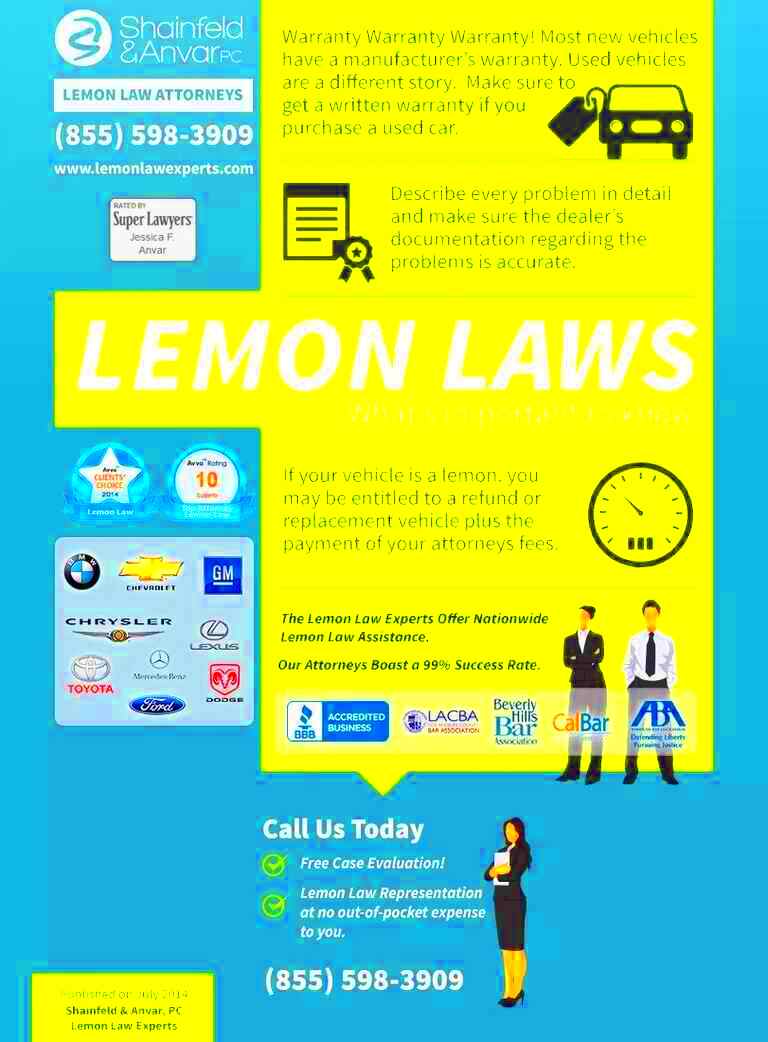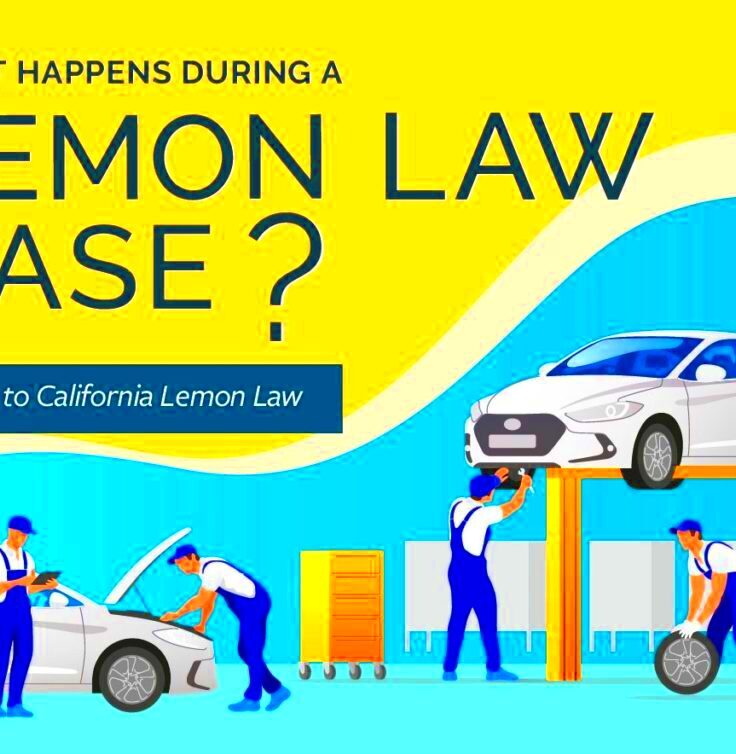Key Legal Issues in Montana Lemon Law Cases
The Montana Lemon Law is designed to protect consumers who purchase or lease new vehicles that turn out to be defective. If your vehicle has repeated issues that the manufacturer can’t fix, this law can help you seek a remedy. In Montana, the law covers not just cars, but also trucks and motorcycles, ensuring that buyers have rights when faced with a problematic vehicle. Knowing how this law works can save you time, money, and frustration. Let’s explore the key aspects of the Montana Lemon Law in more detail.
What Qualifies as a Lemon in Montana?

In Montana, a vehicle is considered a lemon if it meets specific criteria. Here are the main factors that determine whether a vehicle qualifies:
- Substantial Defects: The vehicle must have defects that affect its use, safety, or value. This can include issues like engine problems, faulty brakes, or transmission failures.
- Repair Attempts: The manufacturer or dealer must have had multiple opportunities to fix the defect. Generally, if the vehicle is in the shop for repairs more than three times for the same issue, it may qualify.
- Timeframe: The problems must occur within the warranty period or within one year of purchase, whichever comes first.
- Manufacturer’s Acknowledgment: Sometimes, a vehicle may be deemed a lemon if the manufacturer acknowledges the defect but fails to provide a satisfactory solution.
If you think your vehicle qualifies as a lemon, it’s essential to document all repair attempts and communications with the dealer or manufacturer.
Steps to Take If You Have a Lemon Vehicle

If you suspect you have a lemon, follow these steps to protect your rights:
- Document Everything: Keep detailed records of all repairs, including dates, descriptions of the problems, and any communication with the dealer. This documentation will be crucial if you need to file a claim.
- Notify the Manufacturer: Send a written notification to the manufacturer about the ongoing issues. Make sure to include your contact information, vehicle details, and a summary of the problems.
- Give the Manufacturer a Chance to Fix the Issues: Allow the manufacturer or dealer a reasonable number of attempts to fix the defect. In Montana, this is typically three repair attempts for the same issue.
- Consult a Lemon Law Attorney: If the issues persist, it may be time to consult a lawyer who specializes in lemon law cases. They can guide you through the process and help you understand your options.
- File a Claim: If your vehicle continues to have problems despite multiple repairs, you can file a lemon law claim. Your attorney can help you with the necessary paperwork and represent you in negotiations or court.
Taking these steps can help you get the compensation you deserve for your lemon vehicle and ensure that you are treated fairly under Montana law.
How Montana Lemon Law Protects Consumers
The Montana Lemon Law is a powerful tool for consumers facing persistent vehicle issues. It provides protection for buyers who invest in new cars, trucks, or motorcycles that turn out to be defective. If you’ve purchased a vehicle that isn’t performing as promised, this law can help you seek justice. Here’s how the Montana Lemon Law works in your favor:
- Right to a Refund or Replacement: If your vehicle qualifies as a lemon, you have the right to either a full refund of the purchase price or a replacement vehicle. This means you won’t be stuck with a car that doesn’t work.
- Timeframe for Resolution: The law mandates that manufacturers must resolve the defect within a reasonable time. If they fail to do so, you can pursue a claim.
- Protection from Unfair Practices: The Lemon Law shields consumers from dealers and manufacturers who might try to dismiss your concerns or avoid their responsibilities. You have the legal backing to demand fair treatment.
- Legal Fees Covered: If you win your case, Montana law can require the manufacturer to pay for your attorney fees. This means you don’t have to bear the financial burden of pursuing justice.
Understanding these protections can give you confidence as you navigate the process of dealing with a lemon vehicle. If you believe your vehicle qualifies, knowing your rights is the first step toward a resolution.
Key Legal Requirements for Filing a Lemon Law Claim
When considering filing a lemon law claim in Montana, it’s essential to be aware of the key legal requirements. Meeting these criteria can significantly impact the success of your case:
- Proof of Purchase: You must provide documentation showing that you purchased or leased the vehicle from an authorized dealer.
- Defect Documentation: Keep a record of the specific defects and repair attempts. Detailed documentation, including repair orders and invoices, is vital for establishing your case.
- Warranty Coverage: The defects must occur within the warranty period or within one year of the vehicle’s purchase. Ensure your vehicle was still under warranty when issues arose.
- Reasonable Repair Attempts: The law requires that you give the manufacturer or dealer a reasonable number of attempts to repair the defect—typically three attempts for the same issue.
- Notification Requirement: You must notify the manufacturer in writing about the defect and allow them an opportunity to resolve the issue. Failing to do so may weaken your claim.
By understanding these legal requirements, you can better prepare for filing a claim and enhance your chances of a successful outcome.
Common Challenges in Montana Lemon Law Cases
While the Montana Lemon Law is designed to protect consumers, there can be challenges when pursuing a claim. Here are some common hurdles you might face:
- Proving the Defect: One of the main challenges is proving that the defect significantly affects the vehicle’s use, safety, or value. Without solid documentation, it can be tough to make your case.
- Multiple Repair Attempts: If the dealer claims they fixed the issue after just two attempts, you might not meet the requirement for three attempts, making it harder to qualify for a lemon law claim.
- Manufacturer Denial: Manufacturers may deny claims or argue that the vehicle is not a lemon. This can be frustrating, as they often have more resources to fight claims.
- Time Constraints: There are deadlines for filing a claim under the Montana Lemon Law. If you wait too long, you may lose your right to seek a refund or replacement.
- Legal Costs: While you may recover attorney fees if you win, the initial costs of hiring a lawyer can be a barrier for some consumers.
Being aware of these challenges can help you navigate the process more effectively. Consulting with a lemon law attorney can also provide valuable guidance and support as you work through these obstacles.
How to Choose the Right Lawyer for Your Lemon Law Case
Choosing the right lawyer for your lemon law case can make a significant difference in the outcome. A knowledgeable attorney can guide you through the legal process and ensure your rights are protected. Here are some tips to help you find the right lawyer:
- Look for Experience: Ensure the lawyer has experience specifically in lemon law cases. Ask about their track record and whether they have handled cases similar to yours.
- Check Credentials: Verify their qualifications and memberships in professional organizations, such as the American Association for Justice or local bar associations. This shows their commitment to staying updated on legal developments.
- Read Reviews: Look for client testimonials and reviews online. Past clients’ experiences can give you valuable insights into the lawyer’s approach and success rate.
- Ask About Fees: Discuss the fee structure upfront. Many lemon law attorneys work on a contingency basis, meaning they only get paid if you win your case. Make sure you understand any costs involved.
- Schedule a Consultation: Many lawyers offer free initial consultations. Use this opportunity to ask questions and gauge how comfortable you feel working with them. Communication is key, so choose someone who listens and explains things clearly.
Taking the time to find the right lawyer can significantly increase your chances of a favorable outcome in your lemon law case. A good attorney will not only represent your interests but also provide the support you need throughout the process.
Conclusion on Montana Lemon Law Protection
In conclusion, the Montana Lemon Law serves as a crucial safeguard for consumers who find themselves with defective vehicles. It provides a legal framework that allows buyers to seek justice when a purchased vehicle fails to meet basic performance and safety standards. By understanding your rights under this law, you can take proactive steps to protect yourself and pursue remedies such as refunds or replacements.
Remember, being informed about the criteria for qualifying as a lemon, the legal requirements for filing a claim, and the potential challenges you may face is vital. It’s also essential to choose the right attorney to guide you through the process. With the right knowledge and support, you can navigate the complexities of lemon law cases and achieve a fair resolution.
FAQs About Montana Lemon Law Cases
Here are some frequently asked questions about Montana Lemon Law cases to help clarify common concerns:
- What types of vehicles are covered under the Montana Lemon Law? The law applies to new cars, trucks, motorcycles, and vans purchased or leased in Montana.
- How long do I have to file a lemon law claim? You typically have one year from the date of purchase or the warranty period to file a claim, whichever comes first.
- Can I file a claim if I bought the vehicle used? The Lemon Law generally applies to new vehicles. However, used vehicles may still have protections under warranty or other consumer protection laws.
- What happens if my claim is denied? If your claim is denied, you may have the option to appeal the decision or seek legal counsel to explore other avenues for resolution.
- Do I need a lawyer to file a lemon law claim? While it’s not required to have a lawyer, having one with experience in lemon law can significantly increase your chances of a successful outcome.
These FAQs can help you better understand your rights and the process involved in lemon law cases in Montana. If you have more questions, consulting with an attorney can provide you with tailored advice and information.


